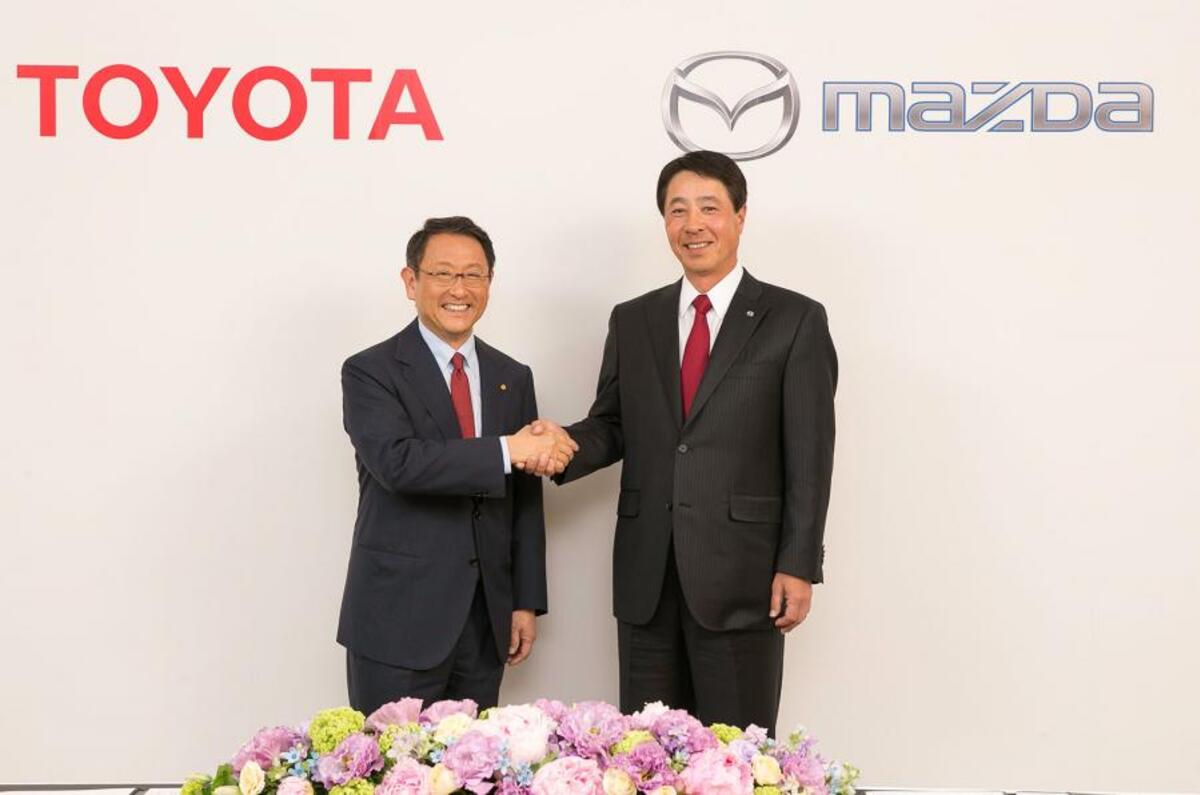Tie-ups and partnerships within the motor industry are nothing new, but in recent times they’ve certainly become more important.
There’s the Renault-Nissan Alliance, PSA Peugeot-Citroën (and by extension, the DS brand, too) and of course the Volkswagen Group, which seems to have turned commonly shared parts and platforms into an art form.
So it’s little surprise, then, to see Toyota increasing its technical partnership with Mazda. To many, the logical flow of information - at least for the forseeable future - will focus around Toyota’s plug-in hybrid and hydrogen fuel cell technology, in return for Mazda’s efficient Skyactiv engines.
For customers, the news is about as good as it comes. It means you’ll finally be able to buy a hybrid Mazda in the not too distant future. Although the company has been trying to develop its own electrification methods for some time now, it appears to have lacked the resources to ‘go it alone’ and so needs a larger partner.
Good, too, is the thought of a Toyota (and, by extension, a Lexus) powered by one of Mazda’s Skyactiv engines, although quite how BMW - Toyota’s other technical partner and a key supplier of its diesel engines - feels about that is unknown.
The bigger picture, though, is that Toyota is branching out and working more closely with other vehicle manufacturers rather than keeping its best tech to itself - something company boss Akio Toyoda has reportedly been keen to do for a long time.
The benefits to both companies further down the line are clear, too, as with shared technology and vehicle development costs comes shared economies of scale, which could eventually help to drive down the cost of plug-in hybrid and EV technology across both product ranges.
I’ll be watching to see when the first fruits of the new partnership begin to develop, but given the prevalence of hybrid vehicle tech in Toyota’s current line-up - and the fact that the fuel cell-powered Toyota Mirai is due to launch in the UK this summer - my bet would be sooner rather than later.




Join the debate
Add your comment
Bullfinch, Einarbb,It's not a company merger, just a tech share
Toyota on the other would most likely want to reduce the cost of sourcing diesel (and poss petrol) engines and what better way to do that, than to source locally as opposed to importing from Europe.
Mazda does have a slightly different rep...
At last!